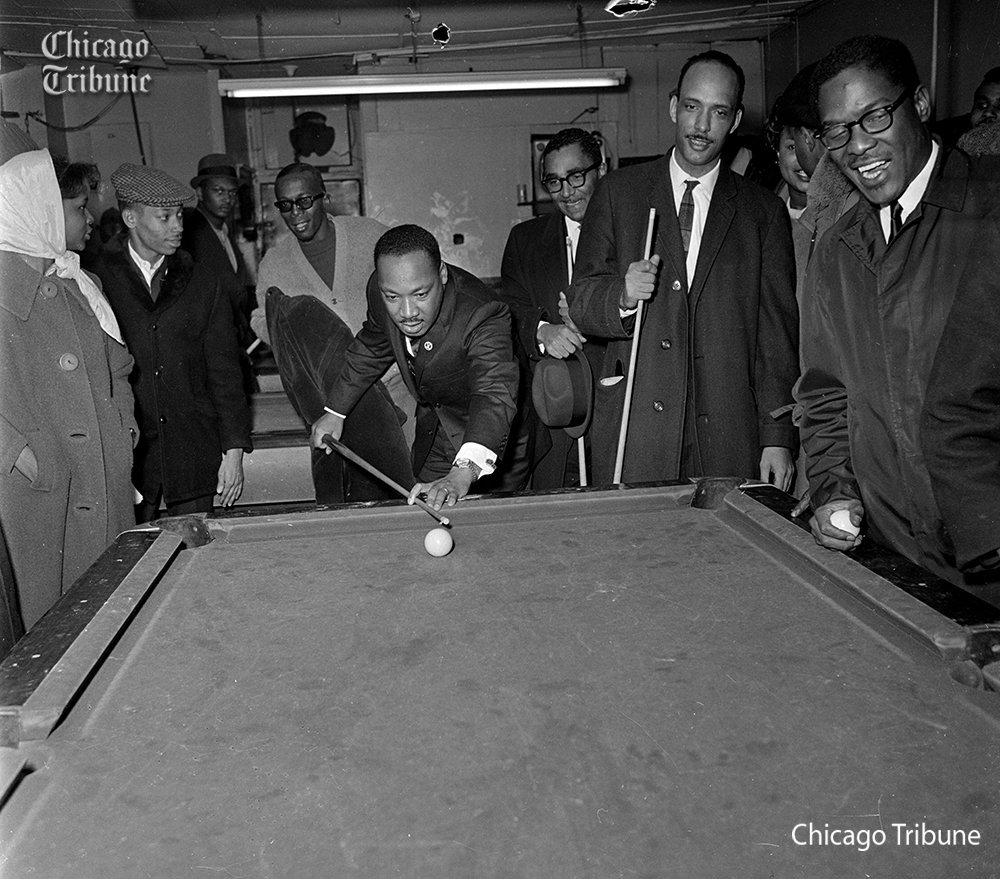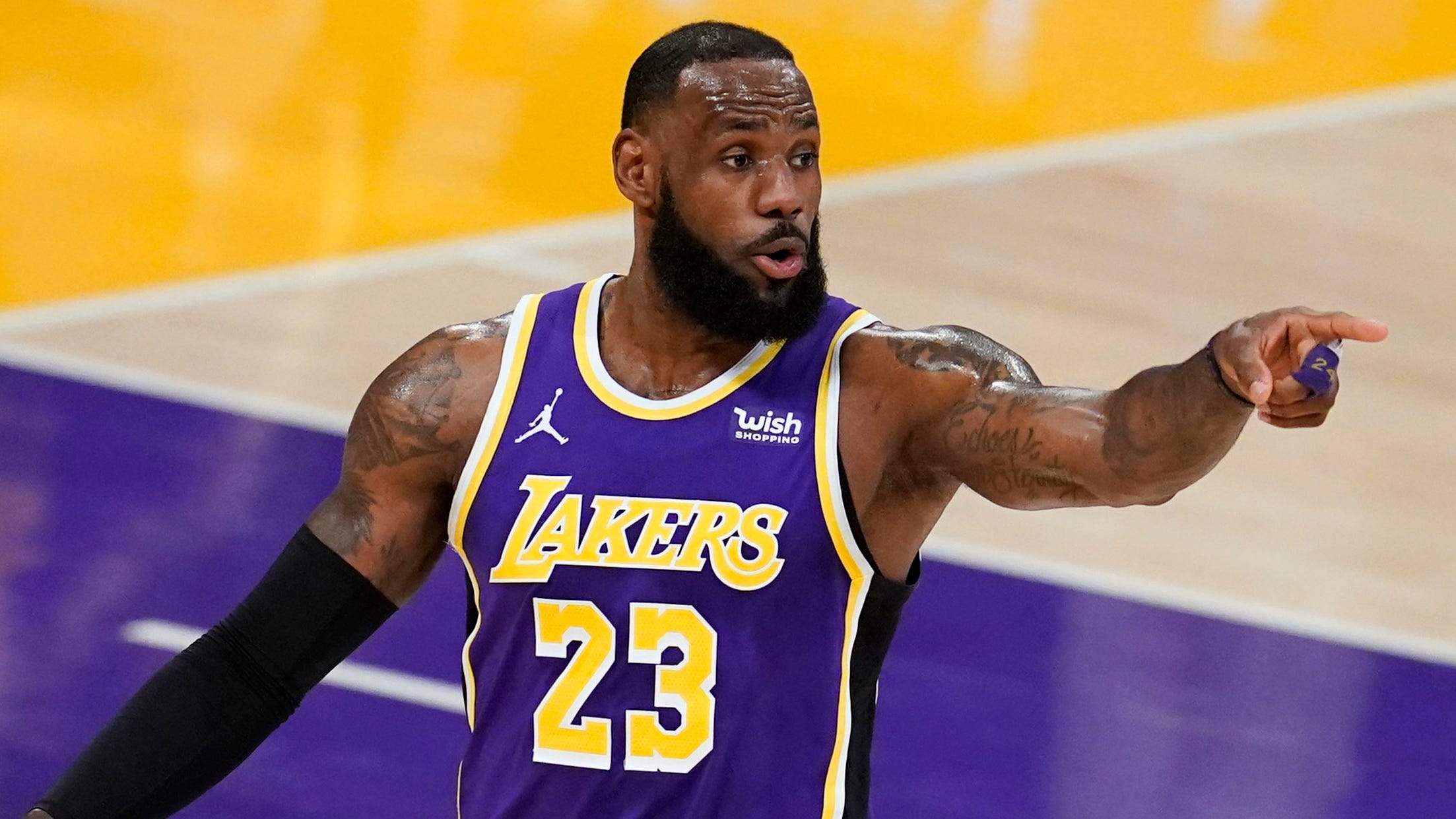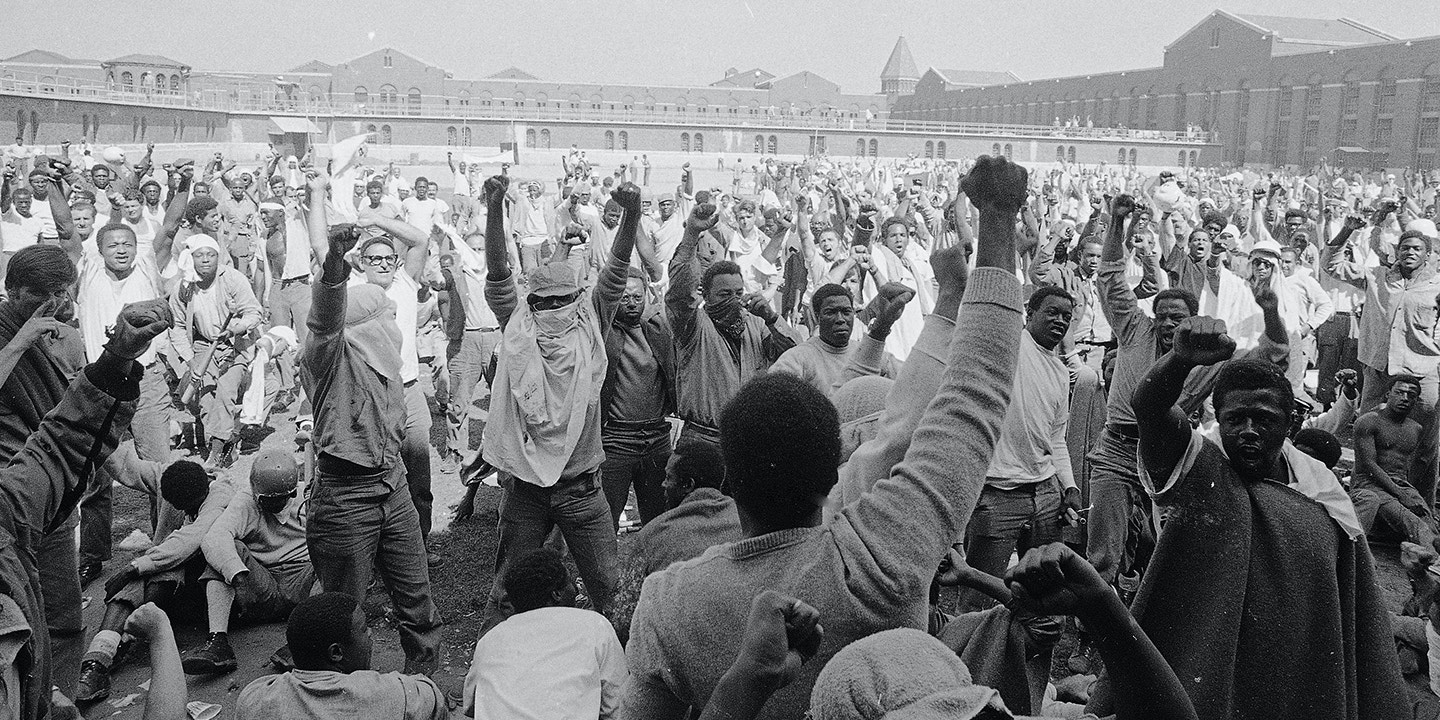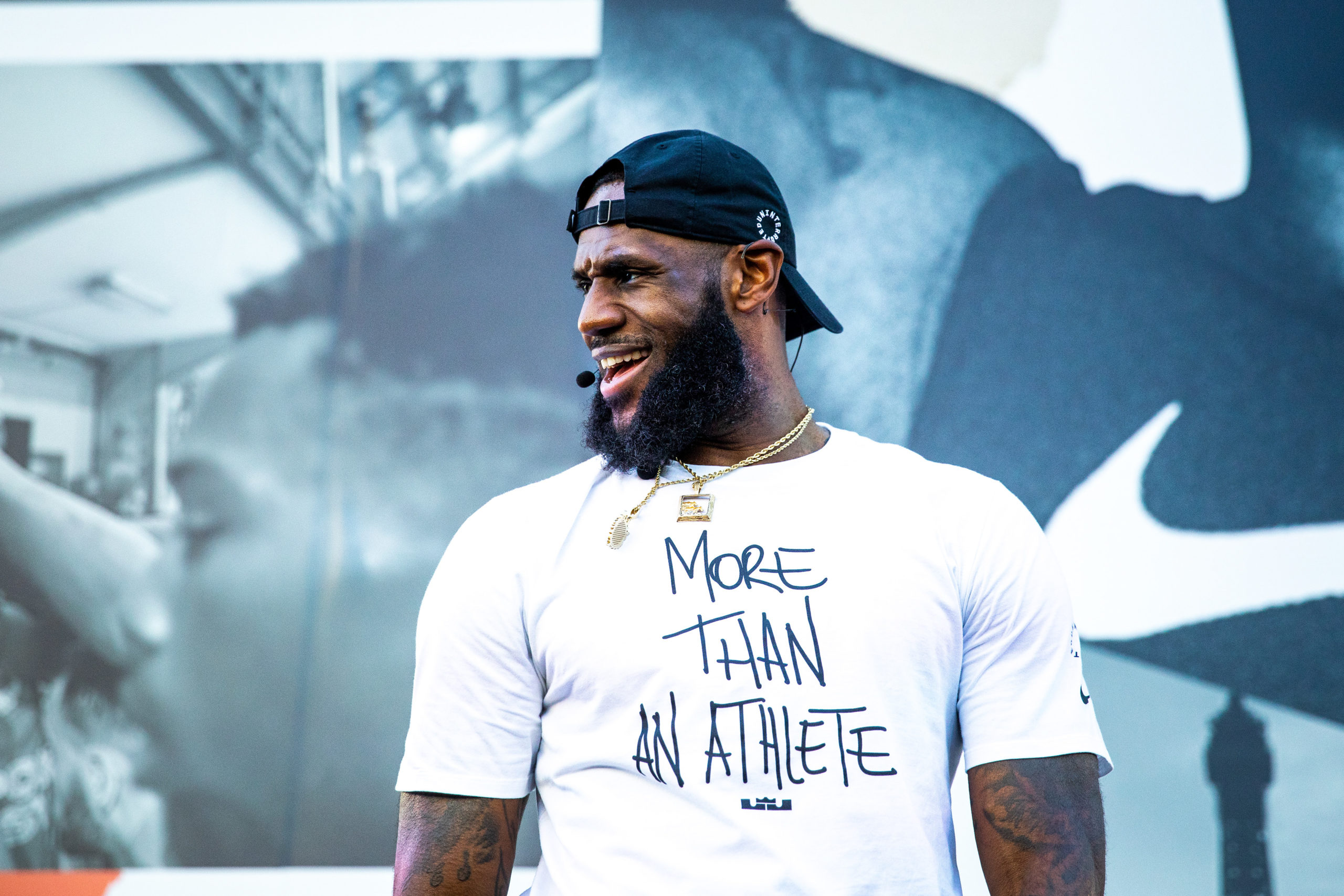MLK Day 2020
In honor of MLK Day 2020, let’s reflect on his legacy and to see how that legacy intertwines into every aspect of American society.
To truly commemorate Dr. King, there are a few facts to consider.
First, we must genuinely honor the memory of Dr. King by not whitewashing or oversimplify his words, deeds, and actions. We must not engage in what Dr. Cornel West calls “the Santa Clausification of brother Martin.” In other words, make him into this colorblind person whose only action was saying that he wishes his four children lived in a nation where they are not judged by the color of their skin but by the content of their character.
He was a man of deep conviction who was committed to radical social change with critiques of the American empire as we have come to know it.
Second, we must also look at the impact Dr. King had on the sports world and how he saw the power that sports in achieving social justice.
We must look at his influence with the athletes and sports figures he came into contact with, how his death impacted the sports world, and examine how his example is demonstrated by today’s athletes work best for him.
While Dr. King, by no means, was a stellar athlete, the only sport he took up was billiards, which doesn’t require much exercise or grit, just hand-eye coordination at the most stellar level.
Granting this fact, Dr. King did see the potential that the athletic world had in setting the ground for racial justice. The athletic arena is a microcosm of America. The hopes and aspirations for a better day and the fundamental concept of treating everyone equally perfectly demonstrate well on the playing field.
Jackie Robinson
The first collision between Dr. King and the sports world came with Jackie Robinson.
We all know the story of Jackie Robinson in 1947 broke the color barrier in Major League Baseball with the Brooklyn Dodgers. It was when Jackie first broke in, Dodgers GM Branche Rickey told him to “turn the other cheek” in the face of racist attacks and to maintain a sense of calm and to not speak out on racial issues.
When Jackie retired in 1957, he started to speak out and became involved in the Civil Rights Movement. It was during that time that Jackie encountered Dr. King, who encouraged Jackie to get more involved.
In many respects, both men were and continue to be grossly whitewashed. People watered down their images to fit a troubling narrative of colorblindness and American exceptionalism. They worked hard, never complained, apparently didn’t see the color of a person skin, and that if anyone can achieve based on individual merit, others will follow suit, regardless of systemic and institutional barriers.
Perfect Timing
However, as history tells us, they were able to be themselves at the right time. Jackie and King spoke out more vehemently on the need to not just combat individual racist attitudes, but to combat systemic oppression.
Along the way, they shared some memorable moments. Dr. King and Jackie both received honorary degrees from Howard University in 1957, and in 1962, Jackie spoke at the Southern Christian Leadership Conference that was founded by Dr. King.
Jackie was present at the March on Washington on August 28, 1963, when Dr. King gave the “I Have a Dream” speech. When Dr. King was arrested and jailed for civil disobedience, Jackie and his family hosted a jazz concert to raise money for bail. Jackie sent a telegram to then-President Lyndon Johnson asking him to intervene during the march on Selma in 1965, to have the National Guard to protect Dr. King and the others get to Montgomery safely. Dr. King was also instrumental in working with two of Jackie’s teammates, Don Newcombe and Roy Campanella, both African American to speak out on matters of race and for their protection from racist attacks.
Jackie and Dr. King did have a few disagreements, including the Vietnam War, but they remained great friends until 1968. It was from there; the link between Dr. King and sports became forever established.
Muhammad Ali
It was during the mid-1960s, as the movement began to evolve as well as Dr. King., that evolution spread into the sports world, particularly with a young brash boxer from Louisville, Kentucky who defeated Sonny Liston to become the Heavyweight Champion of the world at age 22.
His name was initially Cassius Marcellus Clay, but he changed it to Muhammad Ali.
In 1965, Ali was a prominent member of the Nation of Islam and Malcolm X and the Honorable Elijah Muhammad (who preached a message of black nationalism and a politics of separatism) influenced him. Muhammad stood in stark contrast to what Dr. King’s wing of the movement represented.
However, the paths of Ali and Dr. King would cross as it did with Dr. King and Malcolm X.
It was 1967, and Ali was drafted into the army, but refused induction due to his religious beliefs, a move that made him a national pariah.
No Traitor
While many were quick to jump on Ali and called him “anti-American” and a “traitor,” Dr. King was there to support him. Dr. King even said that if people had issues with Ali’s membership in the Nation of Islam, that they should admire his courage to stand on principles against an unjust war. If it weren’t for Ali’s courageous move, Dr. King maybe wouldn’t have followed in denouncing the war.
Eventually, Dr. King and Ali gathered in Ali’s hometown of Louisville to advocate for fair housing. When police jailed Dr. King for protest in 1967, Ali sent him a telegram from Chicago offering support.
After Dr. King’s death, his beloved wife, Coretta Scott King, was supportive of Ali, and she, along with Civil Rights Activist Ralph Abernathy, publicly showed their support for Ali when he was allowed to fight again in Atlanta in 1970.
Much like Dr. King and Jackie Robinson, Ali himself, especially in his post-boxing years battling Parkinson’s, has been whitewashed and watered down. People forget what he represented and what he stood for. He stood for not only racial justice but also somebody who was immensely critical of the American empire; he was critical of imperialism.
1968 Olympics
In the last two years of his life, Dr. King heard a group of black athletes led by a sociology professor at San Jose University was organizing an attempt to boycott the Summer Olympics in Mexico City in 1968.
Dr. Harry Edwards issued the call. He was a professor of the sociology of sport a radical concept at the time, and a former athlete that was very active in the Black Power Movement.
He created a campaign called the Olympic Project for Human Rights, whose goals vast and including things such as hiring more black coaches, disinviting South Africa and Rhodesia from the Olympics due to their racist government policies, restoring Muhammad Ali’s title, and the firing of the openly racist and anti-Semitic Avery Brundidge, the head of the International Olympic Committee.
Gaining Momentum
Edwards managed to garner the support of famed athlete activists like Bill Russell and Lew Alcindor at UCLA, who would later become Kareem Abdul Jabbar. The sociologist also earned the support of Black Power activists like Stokely Carmichael and H. Rap Brown, but not anyone in the Civil Rights Movement until you know who comes along.
Dr. King became the first national leader to endorse the Olympic Project for Human Rights fully.
Dr. King met with Dr. Edwards and many of the athletes in support of the boycott. Eventually, the boycott didn’t happen, and tragically, Dr. King wouldn’t be around to see what would transpire in Mexico City.
After the 200-meter race, two black American sprinters Tommie Smith and John Carlos took home the gold and bronze medals. We all know what happened next.
Iconic Symbolism
They took off their shoes to symbolize poverty, John wore beads around his neck in honor of the victims of lynchings, John opened his jacket to show solidarity for black and white blue-collar workers, and each of them both wore a black glove.
When the national anthem played, they raised their black-gloved fist into the air in a statement of solidarity for the black freedom movement in one of the most beautiful and stunning images ever.
They both paid the price in later years with death threats, loss of employment, and FBI surveillance, similar to Dr. King’s experience, but they knew they had to follow their hearts.
Dr. King would have been so proud of them because they made a statement and acted in the highest tradition of non-violent civil disobedience. They were the most recognizable act of athlete activism in the aftermath of Dr. King’s death, and there were many others to follow.
NBA
On the day of Dr. King’s death and in the years to come, the sports world had to come to terms with what his death meant and how it deeply affected them. Particularly, those who used their athletic platform in support of the movement.
A great example came on the night of April 4th, 1968, when the Boston Celtics and the Philadelphia 76ers were about to battle during the NBA Eastern Conference Finals and the first game being the following day.
Russell Leads
Bill Russell, the great Celtics center who was passionately outspoken and involved in the movement, was devastated by the news. He was at the March on Washington in 1963 with Dr. King.
He organized basketball clinics in Mississippi after the assassination of Medgar Evers in 1963.
Russell also supported Muhammad Ali and the proposed boycott of the 1968 Olympics. He bought land in the African nation of Liberia that was founded by freed slaves.
Additionally, the star would wear dashikis in public to show cultural pride at the height of the Black Power movement. He had a personal stake in the tragedy of Dr. King’s death. His counterpart, rival, and close friend, the great Wilt Chamberlain, was equally devastated.
They both expressed hesitation at playing as well as postponing.
Eventually, the first game went on as scheduled, but the feeling in the air was one of fear, shock, grief, and despair.
No matter who won or lost, Dr. King was gone, and our state of democracy was in shambles. The NBA postponed game two due to the national day of mourning that Lyndon Johnson called for.
MLB
Major League Baseball’s postponed opening weekend games.
Pittsburgh Pirates legend Roberto Clemente, the first Latino to break into baseball, a pioneer in his own right, openly spoke out against playing in the aftermath of Dr. King’s death.
After all, Clemente was an outspoken supporter of the movement.
Legendary St. Louis Cardinals pitcher Bob Gibson, who won the Cy Young award in 1968, opted not to play.
Eventually, every team scheduled to play did not play. The only owner who differed was Walter O’Malley, the disgraced owner of the LA Dodgers, the same team that signed Jackie Robinson in Brooklyn. He had to cave to the pressure because the Dodgers opponent, the Philadelphia Phillies, opted not to play.
Jim Brown, the great running back of the Cleveland Browns and activist, created the Negro Industrial Economic Union. It advocates for black ownership and black economic empowerment. He called on to be a source of calm during the rebellions that occurred in many major cities in the aftermath of Dr. King’s death.
MLK All-Star
In 1970, two years after Dr. King was assassinated, Major League Baseball put together a star-studded all-star game in his honor.
MLB initially set it for 1969, but because of scheduling conflicts, it was rescheduled. The game brought together many of the game’s most prominent stars from the East and West to play in which all the proceeds from the game would go to the Southern Christian Leadership Conference.
The game featured Willie Mayes, Hank Aaron, Tom Seaver, Pete Rose, Al Kaline, and Bob Gibson, with Roy Campanella being the West Coast manager and Joe DiMaggio being the East Coast manager.
In 1974, Hank Aaron was on the verge of breaking Babe Ruth’s all-time home run record, playing for Dr. King’s hometown Atlanta Braves nonetheless.
Hank the Hero
He was knocking on the door of history and, in doing so, was enduring horrific racist threats. Hank Aaron, whom himself had a relationship with Dr. King, was an outspoken activist in his own right.
He worked with the NAACP and Jesse Jackson’s Rainbow/Push Coalition on matters concerning racial justice in sports and beyond.
Hank advocated for black managers and black owners at a time when the notion of that was unheard.
When he was reluctant to play a game against the Cincinnati Reds on April 4th, 1974, he was told by then-Commissioner Bowie Kuhn that he had to play, as a matter of compromise.
Hank said that he would play as long as there is a moment of silence for Dr. King. Sadly, his request Kuhn denied his request.
Eventually, he broke the record but didn’t forget the way he baseball treated him in pursuing so and also never forgot the memory of Dr. King.
As I clearly outlined, Dr. King had a tremendous impact on the sports world, and that is continuing to this day with the new surge of athlete activism.
Today’s non-violent actions on the part of athletes to spark conversations and raise consciousness is per the King tradition, and given this history, it wouldn’t be hard to believe that Dr. King would be in full support of these athletes.
As he said it himself, “the time to do right is always right.”
Rest in Power Dr. King


 NFL
NFL





